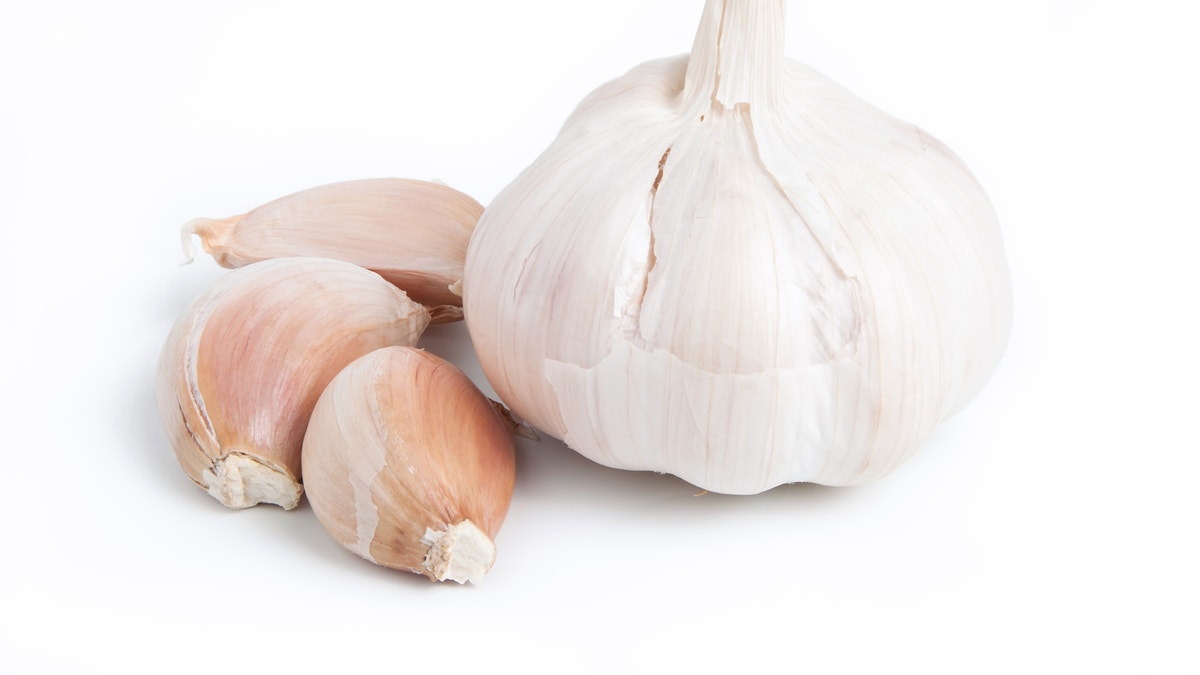
Garlic on white background (iStock)
With the vibrant colors of autumn also comes cold and flu season. Abrupt changes in temperature (chilly nights and the occasional still-warm day) seem to throw our immune systems out of whack, and in colder weather, we spend more time indoors, increasing our chances of catching a virus from a sniffling family member or coworker. A cold is a mild respiratory illness brought by one of as many as 100 different viruses. Flu — short for Influenza — is a more serious infection caused by a smaller number of viruses, whose strains vary from year to year; unlike the cold, flu can last for many weeks, and may result in hospitalization and even death.
The Center for Disease Control and Prevention estimates that as many as one in five Americans fall victim to the flu each year, while the number of colds suffered in the U.S. could be greater than a billion.
Click here for the 10 Foods to Help You Stave Off Colds and Flu Slideshow
Modern medicine has yet to come up with a cure for the common cold, and flu shots, while generally effective, are not foolproof. In order to prevent these seasonal ailments requires some, think-ahead diet planning. No one food can remedy a cold or a flu, but a combination of the right vitamins, minerals, proteins, and anti-oxidants will boost your immune system enough to make a strong defense. Harvard Health Publications recommends focusing on getting the proper amounts of vitamins, A, B6, C, and E, and minerals such as selenium, iron, and zinc.
As always, the main foundation of any diet should be in fruits, vegetables, whole grains, and other complex carbohydrates, but there are some very specific foods with either high amounts of important nutrients or specific antiviral properties that can be especially effective at preventing cold and flu viruses from overrunning you.
Berries
Berries contain the micronutrients called polyphenols, and research shows a clear correlation between high polyphenol content and an antiviral effect. Cranberries, blueberries, and black currants have all been found to be effective weapons against flu.
Bone Broth
A resourceful home cook never discards meat or poultry bones. The marrow, cartilage, and slivers of meat in or on the bones are plentiful sources of minerals such as calcium, magnesium, phosphorus, silicon, and sulphur, which your body needs to prevent an infection. As the heat slowly breaks the collagen within the bones down, it produces a potent protein called gelatin, rich in amino acids, which play an important role in monitoring the immune system.
Cabbage
Cabbage is an under-appreciated source of vitamin C, containing more than 50 percent of your recommended daily intake in just one cup. Specific cells in the immune system require an adequate supply of vitamin C to function properly. Vitamin C concentrations tend to decline exponentially during periods of infection, so it’s important to get copious amounts in order to prevent, and recover, from a flu or cold.
More From The Daily Meal
Elderberry
The elderberry is a species of the sambucus plant, whose berries are sold either dried, fresh, or as an extract. Concentrated elderberry juice has a long history as preventative agent against flu and the common cold. A study on mice infected with the human influenza A virus showed that doses of the juice had a powerful effect of reducing viral replication.
Garlic
Using fresh garlic is a delectable way to flavor any savory dish, but the pungent cloves also contain allicin, a compound which gives garlic its signature scent when it's chopped of crushed. Allicin is an antioxidant that protects cells from free radical damage. Although evidence remains inconclusive, a short study found that people taking garlic extract reported lower incidences of colds compared to those who took a placebo.
Click here for The Rest of the List on 10 Foods to Help You Stave Off Colds and Flu








































